Essential Predictive Analytics

Overview
 The Need to Understand Analytics
The Need to Understand Analytics
Predicting events, alternatives, patterns, and trends is critical to organizations today. This is especially true for those organizations dealing with digital transformation, process automation and useful applications of artificial intelligence. All three of these are part of the dramatic changes facing organizations. There is a well know phrase that describes the need for analytics:
‘If you can’t measure it you can’t manage it’
This is even mor3 important today with the need for rapid turn-around of analytic insight supporting changes in direction, focus and performance pressuring organizations.
Developing an Appreciation of Analytic Value
The use of predictive analytics has had the benefit of an explosion of digital data we have and the compute power to take advantage of all that data. Along with maturing analytic techniques managers have at their disposal a fine selection of methods and algorithms to apply to day to day situations.
Taking advantage of available technology requires starting with an awareness of what is there and how can you use it.
Mangers Need a Foundation in Data Science Today
Understanding the basis and impact of decisions is crucial to improving enterprise performance Success in analyzing impacts depends on Acquisition, analysis, aggregation, presentation, and interpretation of data crucial to effective predictive analytics.
Benefits of attending
Benefits of attending
- Describe the key predictive analytics approaches used today.
- Explain why purpose is needed as a driver of analytics.
- Identify the state of predictive analytics and how organizations are impacted.
- Describe some best practices for applying analytics.
- Explain the key factors for successful analytics application
- Analyze the use of analytics in your organization
- Define the methodology for implementing analytics
- Describe the role of predictive analytics in data science.
- Define and specify a prioritized approach to expanded analytic usage
Who should attend
Who should attend
Managers and professionals need preparation for the coming changes in the 4th Industrial revolution. This course is key step for business managers, strategic planners, marketing analysts, planning managers, process analysts, business analysts, data analysts and business architects in gaining the knowledge to respond successfully to the changes.
Course Outline
Day 1: Why Predictive Analytics?
The reason for predictive analytics and the parent discipline of data science is the goal of reducing uncertainty in solutions and making decision. Managements try to make the choices more reliable and insightful. Resolving problems or evaluating alternative options for perceived opportunities, threats competition and weaknesses depends on good analytics.
Good analytics means going beyond finding an algorithm. It requires understanding and application of a method that goes from finding the right data to drawing the best conclusion, a systematic approach.
Section 1.1: Anticipating Change through Analytics
- EJust what are predictive analytics and the 5 types of data science?
- Data, algorithms, and models
- The role and outcomes of predictive analytics
- Video Discussion – The Growth of Predictive Analytics
Section 1.2: Analysis before analytics
- Why do organizations do this backwards?
- Working with data they have rather than data they need
- An analysis methodology
- How does this compare to business intelligence?
- Topic Discussion – How Much Methodology Do You Need?
Session 2
Types of Predictive Analytics
Section 2.1: 5 Key analytics with High Value
- Importance analytics
- Clustering for groupings
- Comparative techniques
- Path to point for hidden relationships
- Demo Discussion – The Recommendation Engine
Section 2.2: Do Analytics Differ by Level of Organization?
- Levels of analysis and analytics
- External landscape and strategic analytics
- Structural and tactical analytics
- Operational analytics for execution
- Exercise – Analytics for Strategic Alignment
Day Two: Leveraging Predictive Analytics
The range of new analytic techniques provides a rich source of insight for managers today. The insight you gain from analytics is what goes into making better more useful decision choices. Applying predictive techniques to various functions of the organization, choosing better alternatives for products, services, customers, and markets is where the real value lies.
Confirming the outcomes are valuable requires tracking and comparing performance results over time.
Session 3
Marketing Applications
Section 3.1: Interfacing to the Market
- Marketing – Who are the potential customers?
- Sales – ‘People who bought this also bought that’
- Cross selling and upselling
- Video Discussion – Customer Buying Habits
Section 3.2: Customer Service
- Customer retention
- Analyzing churn
- Customer perceptions
- Demo Discussion – Sentiment Analysis
Session 4
Operational Applications
Section 4.1: Process Automation – Best Practices
- Document intake – Smart capture of data
- Robotic Process Automation
- Skills support – Workflow automation
- Policies and procedures
- Video Discussion – Process Enablement
Section 4.2: Analyzing KPIs – Decision Support
- Identifying alternatives
- Evaluating alternatives
- Ranking factors of change
- Demo Discussion – Customer Buying Habits
Your trainer
Meet your expert course trainer: Frank Kowalkowski
 Frank Kowalkowski is President of Knowledge Consultants, Inc., a firm focusing on business performance, business analytics, data science, business architecture, big data, business intelligence, predictive analytics and statistical techniques. He has over 30 years of line management and consulting experience in a wide variety of industries. He has been involved with many projects both as a user and purveyor of business analytics. He has worked projects in state and federal government dealing with back office operations, legislative compliance and regulatory compliance. He has worked on the federal level with the national defense department, Coast Guard for drug interdiction and other projects. His background includes a number of industries including manufacturing, distribution, supply chain, banking, insurance, financial institutions, health care, pharmaceuticals, oil and gas and chemicals.
Frank Kowalkowski is President of Knowledge Consultants, Inc., a firm focusing on business performance, business analytics, data science, business architecture, big data, business intelligence, predictive analytics and statistical techniques. He has over 30 years of line management and consulting experience in a wide variety of industries. He has been involved with many projects both as a user and purveyor of business analytics. He has worked projects in state and federal government dealing with back office operations, legislative compliance and regulatory compliance. He has worked on the federal level with the national defense department, Coast Guard for drug interdiction and other projects. His background includes a number of industries including manufacturing, distribution, supply chain, banking, insurance, financial institutions, health care, pharmaceuticals, oil and gas and chemicals.
More recently Frank has been involved in conducting workshops, professional training sessions and assessments of architecture, data science, governance, compliance, risk and process management efforts. He also develops algorithms for analytics tools particularly semantic algorithms as well as data analysis techniques. He is often a keynote speaker, panel moderator and member at international conferences as well as a conference chair, he has written numerous papers and spoken at conferences on a variety of business subjects. He conducts frequent seminars nationally and internationally on a variety of business management, analytics and information technology topics.
He is the author of a 1996 book on Enterprise Analysis. His most recent publications are a featured chapter in the business book “Digital Transformation: Using BPM You Already Own.” for publication in 2017. His chapter is titled “Improve, Automate, Digitize”, he also has a chapter in the business architecture book titled ‘Business and Dynamic Change’ June, 2015 and a chapter on semantic process analytics in the book Passports to Success in BPM published in 2014 all are available on Amazon.
About KCI
Knowledge Consultants. Inc. (KCI)

Knowledge Consultants, Inc. is a professional services firm founded in 1984. KCI provides consulting and professional education services. With over 50 courses taught worldwide, KCI provides the opportunity to develop core strengths in the following certification areas:
- Process Management
- IT Management
- Business Performance Management
- Business Analysis
- Analytical Techniques for Business
- Business and IT Architecture
KCI has expanded its training and consulting efforts internationally into Europe, Southeast Asia and the Middle East. KCI has an outstanding list of current and past clients including many of the Fortune’s 100 companies.
Consulting focuses on the key areas of Business Performance Management, Process Management, Business and IT Architecture, Business Analysis, Using Analytic Techniques for Performance Improvement and IT Management.
Pricing Details
Prices
- Early Bird PricingSave USD 100
Book and pay before 15, October 2020$399.00excl VAT tax 5% - Standard Pricing$499.00excl VAT tax 5%
Download Brochure and Articles
To learn more and view the course outline fill the form below to download the brochure and related articles.

